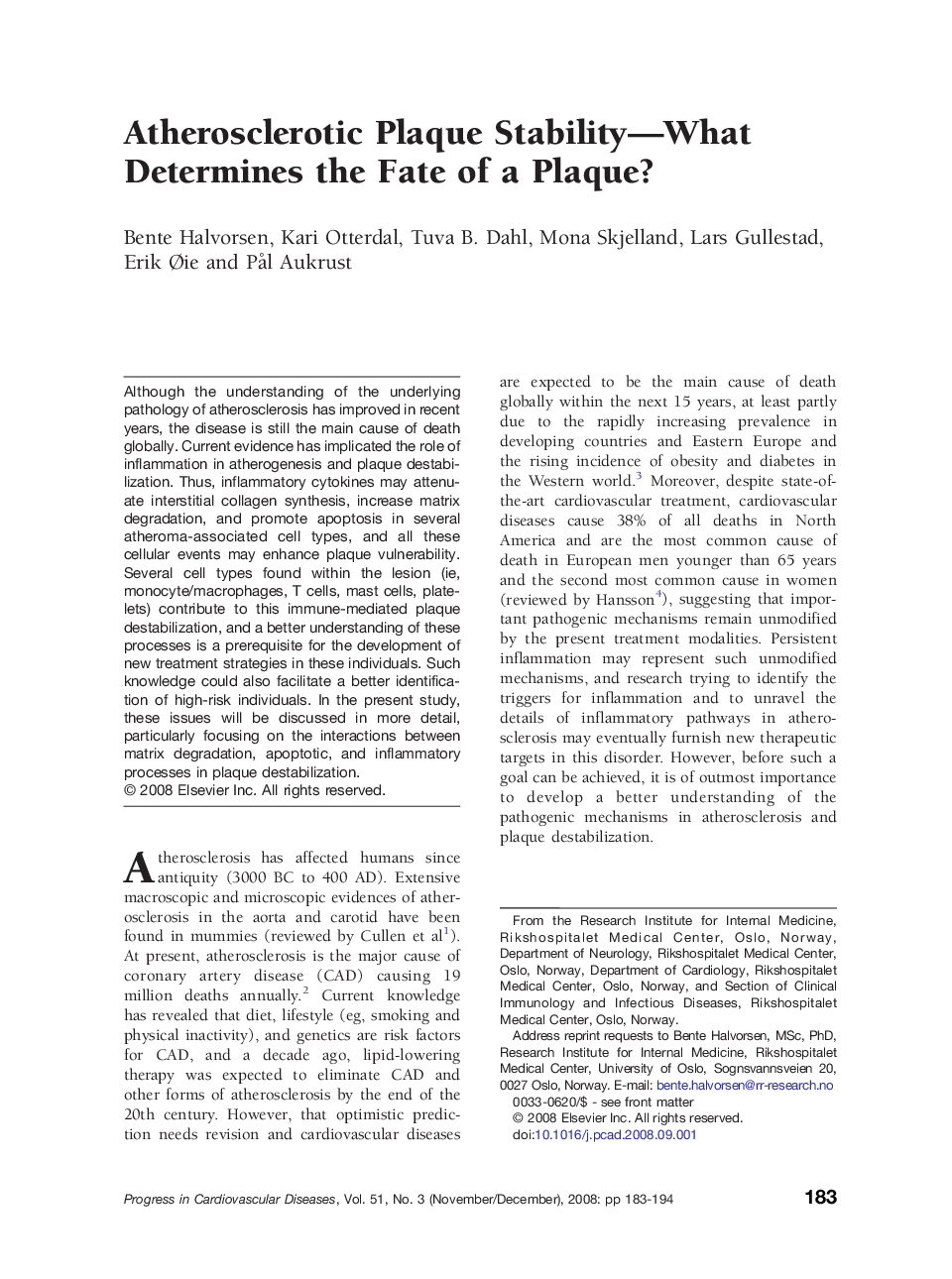| Article ID | Journal | Published Year | Pages | File Type |
|---|---|---|---|---|
| 3006748 | Progress in Cardiovascular Diseases | 2008 | 12 Pages |
Although the understanding of the underlying pathology of atherosclerosis has improved in recent years, the disease is still the main cause of death globally. Current evidence has implicated the role of inflammation in atherogenesis and plaque destabilization. Thus, inflammatory cytokines may attenuate interstitial collagen synthesis, increase matrix degradation, and promote apoptosis in several atheroma-associated cell types, and all these cellular events may enhance plaque vulnerability. Several cell types found within the lesion (ie, monocyte/macrophages, T cells, mast cells, platelets) contribute to this immune-mediated plaque destabilization, and a better understanding of these processes is a prerequisite for the development of new treatment strategies in these individuals. Such knowledge could also facilitate a better identification of high-risk individuals. In the present study, these issues will be discussed in more detail, particularly focusing on the interactions between matrix degradation, apoptotic, and inflammatory processes in plaque destabilization.
